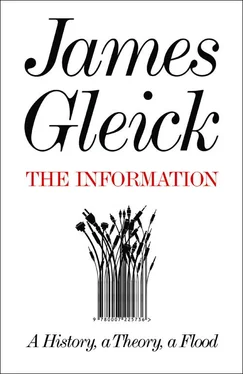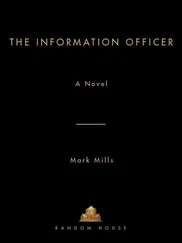1 ...7 8 9 11 12 13 ...33 In our world of ingrained literacy, thinking and writing seem scarcely related activities. We can imagine the latter depending on the former, but surely not the other way around: everyone thinks, whether or not they write. But Havelock was right. The written word—the persistent word— was a prerequisite for conscious thought as we understand it. It was the trigger for a wholesale, irreversible change in the human psyche— psyche being the word favored by Socrates/Plato as they struggled to understand. Plato, as Havelock puts it,
is trying for the first time in history to identify this group of general mental qualities, and seeking for a term which will label them satisfactorily under a single type. . . . He it was who hailed the portent and correctly identified it. In so doing, he so to speak confirmed and clinched the guesses of a previous generation which had been feeling its way towards the idea that you could “think,” and that thinking was a very special kind of psychic activity, very uncomfortable, but also very exciting, and one which required a very novel use of Greek.
Taking the next step on the road of abstraction, Aristotle deployed categories and relationships in a regimented order to develop a symbolism of reasoning: logic—from λóγoς, logos , the not-quite-translatable word from which so much flows, meaning “speech” or “reason” or “discourse” or, ultimately, just “word.”
Logic might be imagined to exist independent of writing—syllogisms can be spoken as well as written—but it did not. Speech is too fleeting to allow for analysis. Logic descended from the written word, in Greece as well as India and China, where it developed independently. Logic turns the act of abstraction into a tool for determining what is true and what is false: truth can be discovered in words alone, apart from concrete experience. Logic takes its form in chains: sequences whose members connect one to another. Conclusions follow from premises. These require a degree of constancy. They have no power unless people can examine and evaluate them. In contrast, an oral narrative proceeds by accretion, the words passing by in a line of parade past the viewing stand, briefly present and then gone, interacting with one another via memory and association. There are no syllogisms in Homer. Experience is arranged in terms of events, not categories. Only with writing does narrative structure come to embody sustained rational argument. Aristotle crossed another level, by seeing the study of such argument—not just the use of argument, but its study—as a tool. His logic expresses an ongoing self-consciousness about the words in which they are composed. When Aristotle unfurls premises and conclusions— If it is possible for no man to be a horse, it is also admissible for no horse to be a man; and if it is admissible for no garment to be white, it is also admissible for nothing white to be a garment. For if any white thing must be a garment, then some garment will necessarily be white —he neither requires nor implies any personal experience of horses, garments, or colors. He has departed that realm. Yet he claims through the manipulation of words to create knowledge anyway, and a superior brand of knowledge at that.
“We know that formal logic is the invention of Greek culture after it had interiorized the technology of alphabetic writing,” Walter Ong says—it is true of India and China as well—“and so made a permanent part of its noetic resources the kind of thinking that alphabetic writing made possible.” For evidence Ong turns to fieldwork of the Russian psychologist Aleksandr Romanovich Luria among illiterate peoples in remote Uzbekistan and Kyrgyzstan in Central Asia in the 1930s. Luria found striking differences between illiterate and even slightly literate subjects, not in what they knew, but in how they thought. Logic implicates symbolism directly: things are members of classes; they possess qualities, which are abstracted and generalized. Oral people lacked the categories that become second nature even to illiterate individuals in literate cultures: for example, for geometrical shapes. Shown drawings of circles and squares, they named them as “plate, sieve, bucket, watch, or moon” and “mirror, door, house, apricot drying board.” They could not, or would not, accept logical syllogisms. A typical question:
In the Far North, where there is snow, all bears are white.
Novaya Zembla is in the Far North and there is always snow there.
What color are the bears?
Typical response: “I don’t know. I’ve seen a black bear. I’ve never seen any others. . . . Each locality has its own animals.”
By contrast, a man who has just learned to read and write responds, “To go by your words, they should all be white.” To go by your words—in that phrase, a level is crossed. The information has been detached from any person, detached from the speaker’s experience. Now it lives in the words, little life-support modules. Spoken words also transport information, but not with the self-consciousness that writing brings. Literate people take for granted their own awareness of words, along with the array of word-related machinery: classification, reference, definition. Before literacy, there is nothing obvious about such techniques. “Try to explain to me what a tree is,” Luria says, and a peasant replies, “Why should I? Everyone knows what a tree is, they don’t need me telling them.”
“Basically the peasant was right,” Ong comments. “There is no way to refute the world of primary orality. All you can do is walk away from it into literacy.”
It is a twisting journey from things to words, from words to categories, from categories to metaphor and logic. Unnatural as it seemed to define tree , it was even trickier to define word , and helpful ancillary words like define were not at first available, the need never having existed. “In the infancy of logic, a form of thought has to be invented before the content can be filled up,” said Benjamin Jowett, Aristotle’s nineteenth-century translator. Spoken languages needed further evolution.
Language and reasoning fit so well that users could not always see the flaws and gaps. Still, as soon as any culture invented logic, paradoxes appeared. In China, nearly contemporaneously with Aristotle, the philosopher Gongsun Long captured some of these in the form of a dialogue, known as “When a White Horse Is Not a Horse.” It was written on bamboo strips, tied with string, before the invention of paper. It begins:
Can it be that a white horse is not a horse ?
It can.
How ?
“Horse” is that by means of which one names the shape. “White” is that by means of which one names the color. What names the color is not what names the shape. Hence, I say that a white horse is not a horse.
On its face, this is unfathomable. It begins to come into focus as a statement about language and logic. Gongsun Long was a member of the Mingjia, the School of Names, and his delving into these paradoxes formed part of what Chinese historians call the “language crisis,” a running debate over the nature of language. Names are not the things they name. Classes are not coextensive with subclasses. Thus innocent-seeming inferences get derailed: “a man dislikes white horses” does not imply “a man dislikes horses.”
You think that horses that are colored are not horses. In the world, it is not the case that there are horses with no color. Can it be that there are no horses in the world?
The philosopher shines his light on the process of abstracting into classes based on properties: whiteness; horsiness. Are these classes part of reality, or do they exist only in language?
Horses certainly have color. Hence, there are white horses. If it were the case that horses had no color, there would simply be horses, and then how could one select a white horse? A white horse is a horse and white. A horse and a white horse are different. Hence, I say that a white horse is not a horse.
Читать дальше











